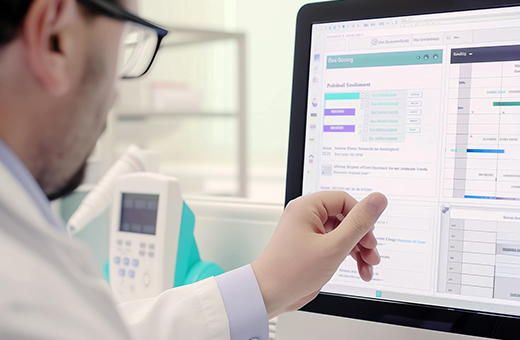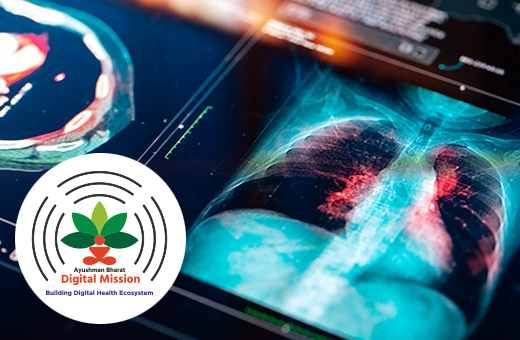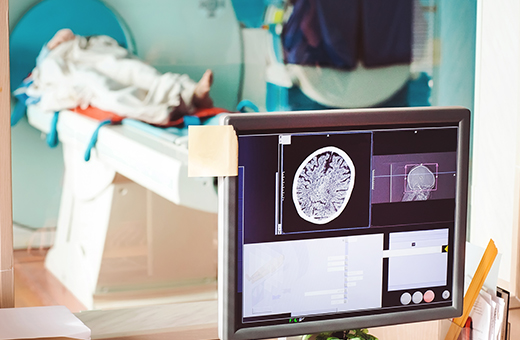

The NCG EMR initiative is a first of its kind major initiative in India towards the important objective of driving integrated cancer care. The NCG first defined a comprehensive set of requirements for an EMR with specialized oncology capabilities. Following an RFE (Request For Empanelment) and a rigorous process of selection, the NCG empanelled six EMR vendors which were closest and fully committed to the NCG EMR requirements. These vendors were supported to build world class features in medical, surgical and radiation oncology. Subsequently, it launched the Leading EMR Adopter Program (LEAP) to identify and support NCG centres in implementing ABDM compliant NCG empanelled oncology EMRs.
NCG has further enhanced the clinical workflows to ensure the oncology EMR fully accommodates the diverse needs of the cancer care ecosystem. NCG is continuing to work on achieving interoperability across healthcare platforms, leveraging the ABDM architecture, enabling seamless data exchange for continuity of care. We are also working towards establishing standardized reporting mechanisms for key operational and clinical metrics, ensuring consistency, accuracy, and actionable insights for healthcare providers.

Electronic Medical Records are important for hospitals as they streamline clinical workflows, reduce documentation time, and improve coordination among healthcare providers.
NCG KCDO has launched the Leading EMR Adoption Program (LEAP) to help hospitals procure and implement EMRs.
NCG KCDO assists NCG network hospitals who join LEAP by offering a comprehensive package of support services for end to end processes. Please refer to the NCG EMR Resource Library for a list of key resources which can be used by hospitals across their digital transformation journey.
For participation and funding support, email your expression of interest to ncgemr@gmail.com
Click on each vendor to explore their oncology specific EMR features or connect with them directly

The National Cancer Grid (NCG) has launched a comprehensive EMR Adoption Handbook to support hospitals in their transition to electronic medical records. This essential guide provides a structured, step-by-step approach for hospitals-both small and large-ensuring a smooth and efficient EMR implementation.
Designed as a practical tool, the handbook outlines key phases such as readiness assessment, vendor selection, infrastructure setup, data migration, staff training, and post-go-live support. By offering checklists and milestones, the resource helps hospital steering committees track progress, manage complexities, and minimize disruptions to patient care.

NCG is working towards achieving seamless clinical data interoperability across its network of hospitals. Why does this matter? Because access to complete patient data means better informed decisions, reduced repeat testing, more personalized treatment plans, and improved continuity of care for cancer patients.
To make this a reality, we've brought together a dedicated subcommittee of experts in interoperability, Fast Healthcare Interoperability Resources (FHIR), EMR solutions, digital health, and cancer care along with representatives from NCG empanelled EMR vendors.
Together, we’ve developed an NCG Interoperability Blueprint a structured approach built on the Ayushman Bharat Digital Mission (ABDM) framework. This blueprint empowers EMR vendors to share both structured and unstructured cancer related data efficiently, ensuring that even free text reports and notes can be meaningfully categorized, transferred, and integrated into clinical workflows.
We're pilot testing the blueprint with NCG empanelled EMR vendors to validate and refine it. Once finalized, we will publish the blueprint for broader consumption enabling a more connected oncology care ecosystem.

Backed by senior oncologists, NCG works closely with empanelled EMR vendors to build and refine oncology specific functionalities. Key areas of enhancement include Medical Oncology, Radiation Oncology, Surgical Oncology, and Multidisciplinary Tumor Board workflows.
Additionally, every EMR product is aligned with consistent clinical KPIs, intuitive dashboards, and interoperability standards to ensure seamless cancer care continuity. Discover how these enhancements can transform oncology workflows and improve patient outcomes. EMR companies can use the NER V2.0 and the clinical modules to enhance their products for cancer care.
The NCG EMR Requirements are a comprehensive set of EMR requirements needed for effective management of patients with cancer. The NER documents are a result of intense deliberations over several months between healthcare professionals involved in cancer care and technology experts, and is available as a digital public good.
NCG KCDO has developed key performance indicators that include clinical, operational and financial metrics to help monitor performance for clinicians and administrators.
This will create a foundation for streamlining the data capture and building a cancer data registry in the future. EMR vendors can integrate these KPIs into their systems to provide standardized reporting and dashboards.
NCG KCDO has published best practices on UI/UX guidelines for digital health systems and provided recommendations on implementation. EMR vendors can adopt the UI/UX framework to improve the user experience of their existing systems and new product development that can help accelerate adoption of such systems.
NCG KCDO has developed a blueprint leveraging the existing ABDM architecture to drive interoperability across systems including specific clinical indicators (data dictionary) for the most common cancer types.
EMR vendors can adopt this blueprint and data dictionary to enhance their systems' integration capabilities with other EMRs and digital solutions